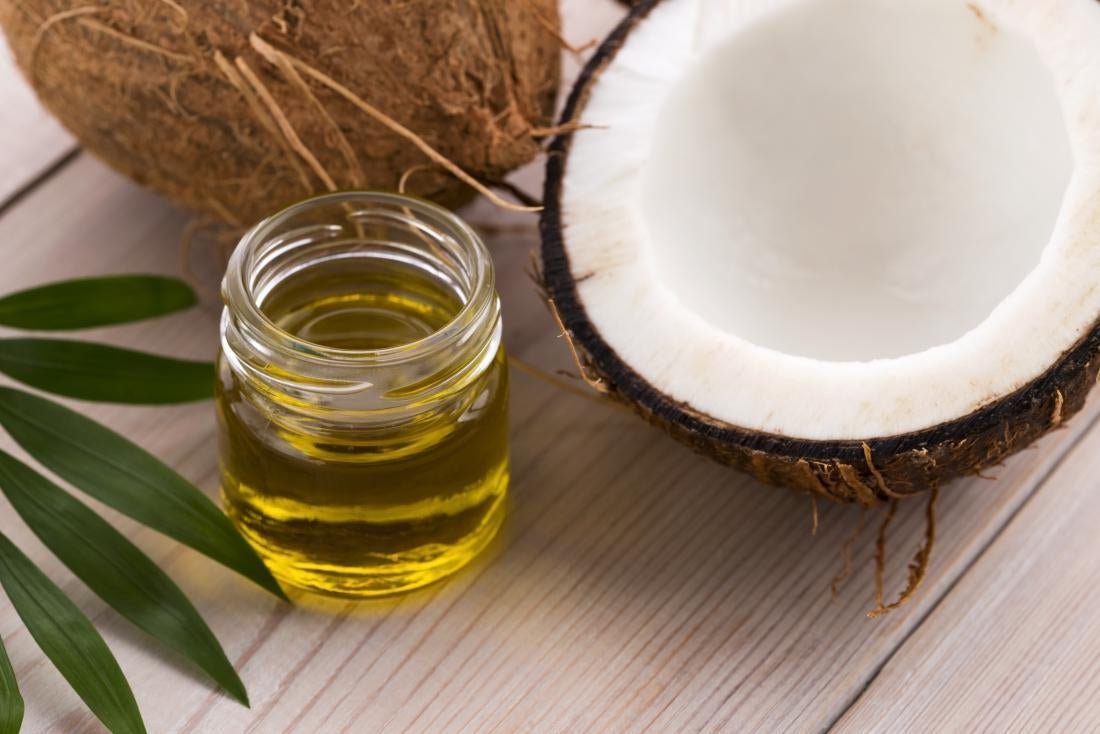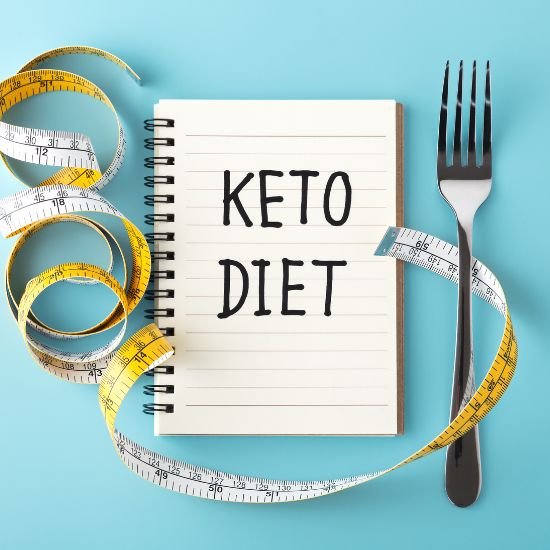
Know all about MCT oil I The Science behind MCT oil.
Share
Facts about MCT oil .
What Is MCT Oil ?
The Different Types of MCTs
Health Benefits of MCTs
MCTs vs. Long-chain fatty acids
MCTs vs. Short-Chain Fatty Acids
Coconut Oil vs. MCT Oil
How MCT Oil is Made ?
Why MCT Oil Is The Ultimate Energy Source ?
The Nutrition of MCTs and Where To Find Them
How to Use MCT Oil ?
MCT oil is one of the most bioavailable sources of energy. It is not just a buzzword. It is made by extracting medium-chain triglycerides (MCTs) from palm and or coconut oil. MCT oil is a combination of 2 fatty acids Caprylic acid (C8) & Capric acid (C10) , or pure Caprylic acid (C8) , and it is available in oil as well as Powder form .
Studies suggest MCT oil can aid healthy weight & fat loss, boost brain power, increase energy levels, support GI health, and help control hunger.
On the keto diet, It is is a source of fat that can quickly boost energy levels by increasing ketone production effectively.
MCT has these health benefits because, unlike other fatty acids, Medium Chain triglycerides don’t get stored as body fat.
Read on to learn how MCT works & why it’s so good for us.
What Is MCT Oil?
MCT stands for Medium chain triglycerides or they can also called as Medium chain fatty acids ( MCFAs) .
MCT oil is the combination of the two fatty acids Caprylic acid (C8) & Capric acid (C10) , or pure Caprylic acid (C8) , extracted from Palm and or coconut oil.
MCTs are called “medium chain ” because they only have six to ten carbon atoms. They are a form of saturated fatty acids and there are Four different types based on their carbon length.
Medium Chain triglycerides make a quick energy source because they do not rely on other enzymes for absorption in our body.
Let’s take a closer look at each medium-chain fatty acid.
Types of MCTs
MEDIUM CHAIN TRIGLYCERIDES are known for being quickly absorbed by our body and metabolized into energy into the liver. In terms of energy production MCT’s are the most efficient saturated fats.
MCTs create ketones, an energy molecule. Ketones are an amazing source of energy for our body in comparison to glucose because they produce far less molecules that react with other molecules when they are metabolized.
There are four MCTs found in food :
- Caproic Acid ( 6 carbons)
- Caprylic Acid (8 carbons)
- Capric Acid (10 carbons)
- Lauric Acid (12 carbons)
1: CAPROIC ACID (C6)
Caproic acid (C6) makes up about 1% of the total MCTs in coconut oil.
If MCT oil has too much Caproic acid (C6) in it , it will tastes a bit off or creates a tingle in our throat.
While it doesn’t taste the greatest, there is usually not enough of it in coconut oil or MCT oil to taste it. It converts quickly to ketones.
2: CAPRYLIC ACID (C8)
Caprylic acid (C8) makes up 12% of the MCTs in of coconut oil.
Due to it’s strong anti microbial properties - This type of MCT helps us to maintain a healthy gut. After Caproic acid (C6) this is the most efficient fatty acid because it converts rapidly into ketones into the liver.
That’s why C8 is the main fatty acid in MCT oil.
3: CAPRIC ACID (C10)
Like Caprylic acid (C8) , C10 turns into ketones quickly into the liver.
Capric acid (C 10) is a little bit slower than Caprylic acid (C8) during the Adenosine triphosphate (ATP) process, and makes up 10% of MCTs in coconut oil.
4: LAURIC ACID (C12)
Lauric acid ( C12) makes up 77 percent of MCTs in coconut oil. Like its fellow MCTs, lauric acid (C12) has also antimicrobial properties. However, unlike the C8 & C10 , lauric acid has a slower metabolization process.
Some people debate the fact that lauric acid (C12) should even be considered a Medium chain triglycerides (MCT) due to it’s larger size & longer time to metabolize.
Lauric acid(C12) is the most inefficient of all the MCTs because it can’t be turned into energy as quickly as the other MCTs . Because of this, we won’t find Lauric acid (C12) in a high-quality MCT oil.
The shorter the carbon chain, the more efficiently the MCT will be turned into ketones. Fatty acids with longer carbon atoms are metabolized much slower.
Health Benefits of MCT Oil
There are numerous health benefits of MCTs — ranging from weight loss and gut health to mental and physical advantages.
Here’s all MCT oil can do for you: ( MCT oil benefits)
- Supports healthy weight loss
- Aids Gastro intestinal health
- Supports cognitive health
- Helps prevent cardiac disease
- MCTs may help manage blood sugar.
- Increases exercise performance
- MCTs helps to Supports ketosis
- Helps to keep you satisfied.
1: MCts helps to support healthy weight loss.
Fats have always been known to help us stay fuller and longer.
However, more researches and studies have been popping up suggesting that Medium chain triglycerides (MCTs) not only help us maintain satiety, but raise the metabolic rate at which our body functions — leading to greater weight loss.
References :
- https://www.ncbi.nlm.nih.gov/pubmed/18326600
- https://www.ncbi.nlm.nih.gov/pubmed/12975635
- https://www.ncbi.nlm.nih.gov/pubmed/17570262
Specifically, The Journal of Nutrition published a double blind placebo study demonstrating the difference between one group of subjects consuming Medium Chain Triglycerides (MCTs) & the other group of subjects consuming LCTs (long-chain triglycerides) for their fat intake.
The rest of their nutritional intake was the same, the only difference being the type of fat they consumed .
Ref: https://www.ncbi.nlm.nih.gov/pubmed/11694608.
Over the course of a Twelve week period, there was about an eight and a half pound difference in overall body fat lost, and a loss in body weight too. This difference could be due to the fact that Medium Chain triglycerides (MCTs) prevent fat accumulation through enhanced thermogenesis and fat oxidation — which helps our body produce ketones .
Ref: https://www.sciencedirect.com/science/article/pii/S104366180900276X?np=y
A double-blind study published in the Journal of Nutrition found that Medium chain triglycerides (MCTs) suppressed the accumulation of body fat in healthy men & women.
Ref : https://academic.oup.com/jn/article/131/11/2853/4686757
Another study suggest that for both obese & lean individuals, meals with Medium chain triglycerides (MCTs) increased thermogenesis after eating.
Ref: https://academic.oup.com/ajcn/article-abstract/53/5/1130/4731857?ijkey=e445deaa7f8b6cf0f0fca0a00df96b232b5810bb&keytype2=tf_ipsecsha
Medium chain triglycerides (MCTs) also have fewer calories than Long Chain triglycerides (LCTs) , with 8.3 calories / gram vs 9.2 calories / gram.
Despite these promising findings, the effects of Medium chain triglycerides (MCTs) on weight loss remain moderate. A meta-analysis of Thirteen studies found that compared to Long chain triglycerides (LCTs) , Medium chain triglycerides (MCTs) did decrease body weight, waist & hip circumference, total body & subcutaneous fat, and visceral fat – but the changes were modest.
Ref: https://www.ncbi.nlm.nih.gov/pubmed/25636220
In conclusion, Medium chain triglycerides (MCTs) can aid healthy weight-loss because they make you feel fuller for longer, don’t get store as fat, have lower calories, and boost our metabolism through their thermogenic effect, but the overall change is moderate.
2: MCTs AIDS GASTRO INTESTINAL HEALTH
MEDIUM CHAIN TRIGLYCERIDES (MCTs) are natural antibiotics and are capable of killing certain types of harmful bacteria without removing or decreasing “good” bacteria. This leads to a better gut environment overall which improves the defense against harmful fungi , bacteria, and other parasites.
Harmful bacteria such as staphylococcus, streptococcus, neisseria & other bacteria known to cause viruses have been killed by Medium chain triglycerides (MCTs) .
Our gut affects everything from energy expenditure to our ability to absorb Minerals & Vitamins , so it’s important to keep it balanced and healthy.
Ref: https://www.ncbi.nlm.nih.gov/pubmed/1170544
In conclusion, Medium chain triglycerides (MCTs) help keep a healthy balance of gut flora and improve the absorbability of nutrients.
3: MCTs SUPPORTS COGNITIVE HEALTH
As recent studies have suggested , the connection of brain & gut health is more apparent than ever.
As the majority of our brains consist of fatty acids, it’s no wonder we get more energy and think more clearly when we provide our bodies with MCT oil & other healthy fats.
Ketones are able to pass through the blood-brain barrier and serve as fuel for the CNS (central nervous system) , which means Medium chain triglycerides (MCTs) directly support cognitive health.
The journal Front Aging in Neuroscience recently published a study showing that subjects with memory impairment showed improvement in memory after supplementing with Medium chain triglycerides (MCTs) that produced higher ketone levels in the blood.
Ref: https://www.ncbi.nlm.nih.gov/pmc/articles/PMC4202787/
Additionally, Medium chain Triglycerides (MCTs) have been shown to have a strong blood sugar stabilizing effect that may help reduce inflammation & improve brain function.
Ref: https://www.ncbi.nlm.nih.gov/pmc/articles/PMC2671041/
4: MCTS HELPS PREVENT HEART DISEASE.
In addition to Medium chain triglycerides (MCTs) providing natural antibiotics for immune system & gut health, studies have suggested the potential for Medium chain triglycerides (MCTs) to aid in the prevention & treatment of diseases such as diabetes and cardiovascular disease.
The European Journal of Clinical Nutrition published a study showing that the consumption of Medium chain triglycerides (MCTs) for Eight weeks resulted in a significant decrease (-14.54%) in blood triglyceride levels — a common marker of heart disease — in hypertriglyceridemic patients compared to consumption of Long chain triglycerides (LCT) oil .
Ref: https://www.ncbi.nlm.nih.gov/pubmed/19156155
Another study published in the Journal of Nutrition supports the above findings showing that consumption of Medium chain triglycerides (MCTs) in overweight men lead to improvements in overall lipid profiles — specifically showing increases in bad cholesterol (LDL) particle size (the big “fluffy” LDLs that are associated with decreased risk of cardiovascular disease.
Ref: https://www.ncbi.nlm.nih.gov/pubmed/12771322
Furthermore, a study from the journal of Metabolism concluded that overweight women supplementing with Medium chain triglycerides (MCTs) improved their overall cardiovascular risk profile.
Ref: https://www.ncbi.nlm.nih.gov/pubmed/12800105
However, in this study the Medium Chain triglycerides (MCTs) were combined with phytosterols & omega-3 fatty acids so it is hard to conclude if the results were solely due to the Medium chain triglycerides (MCTs) themselves or the combination of these oils.
In conclusion, Medium chain triglycerides (MCTs) might be able to help in the prevention of Cardiac disease by keeping blood triglycerides stable & modestly reducing bad cholesterol (LDL) .
5: MCTS CAN HELP MANAGE DIABETES
Studies have suggested that Medium chain triglycerides (MCTs) play a possible role in the prevention & treatment of diabetes. Specifically, the journal of Diabetes and the journal ofMetabolism published studies suggested that Medium chain triglycerides (MCT) consumption improved insulin sensitivity — a key factor in prevention and management of diabetes - in both diabetic patients and nondiabetic subjects.
Ref:
- https://www.ncbi.nlm.nih.gov/pubmed/1568535
- https://www.ncbi.nlm.nih.gov/pubmed/17570262
Medium Chain Triglycerides (MCTs) are also a promising supplement for individuals who already suffer from Type 1 diabetes. A small study suggested that ingesting Medium chain triglycerides (MCTs) prevented the decline in cognitive performance during hypoglycemia in people with Type 1 diabetes. The effect was the most positive in verbal memory.
Ref: https://www.ncbi.nlm.nih.gov/pmc/articles/PMC2671041/
6: MCTs CAN IMPROVE OUR EXERCISE PERFORMANCE
Over the years, Medium chain triglycerides (MCTs) have become a staple in the diets of both recreational and elite athletes. This is no surprise due to the fact that Medium chain triglycerides (MCTs) have a high energy density, are rapidly absorbed in the body and can quickly convert into clean & sustainable energy.
Researches are continuously emerging in this area but one fairly recent study published in the Journal of Nutritional Science and Vitaminology showed that recreational athletes significantly reduced BLL (blood lactate levels) & rate of perceived exertion (RPE) during moderate-intensity exercise while also extending the duration of high-intensity exercise when consuming Medium chain triglycerides (MCTs).
Ref: https://www.ncbi.nlm.nih.gov/pubmed/19436137
Another study from the Journal of Applied Physiology found that endurance-trained cyclists who consumed Medium Chain triglycerides (MCTs) during moderate-intensity exercise for 2 hours had significant improvements in time-trial performance during high-intensity exercise.
Ref: https://www.ncbi.nlm.nih.gov/pubmed/8806933
The research in this area is still in its initial stages, but with more & more athletes making the conversion to high fat , low carb diets, there is no question that the scientific evidence will follow and the benefits for all different types of exercise will become more clear.
7: MCTs SUPPORTS KETOSIS
Medium Chain Triglyceride (MCT oil )should be a go-to supplement for all keto-ers because on top of providing those health benefits, MCT helps increase blood ketone levels.
Consuming MCTs can significantly increase ketone levels within an hour.
Ref: https://patentimages.storage.googleapis.com/30/8d/03/106b0996244fbf/US20160067207A1.pdf
This makes MCT ideal for taking it when you are trying to start ketosis, get back into keto or need a boost of energy when you are already in ketosis.
8: MCTs HELPS SATISFY YOU & CURB HUNGER.
Medium chain triglycerides (MCT oil) helps keep you satisfied and curb hunger, so it makes for a great keto-friendly snack. Instead of having butter coffee, you could add Medium chain triglyceride (MCT oil) to your coffee & reap even more health benefits while keeping hunger at bay.
Adding MCT oil powder or or MCT oil to your keto snacks helps you three-fold:
MCTs boosts ketones, gives you health benefits, & keeps you satiated.
Medium Chain Triglycerides vs. Long-Chain Fatty Acids
Aside from MCTs , there are also LCTs or long chain fatty-acids, which have Thirteen carbons or more.
Long Chain triglycerides (LCTs) require much more work by the body to process than Medium Chain Triglycerides (MCTs) because of their size.
There are Seventeen recognized Long chain Triglycerides (LCTs), including: palmitic acid,myristic acid, stearic acid, arachidonic acid, oleic acid, erucic acid, eicosenoic acid, nervonic acid, omega 3, omega 6 and omega 9 fatty acids.
Ref: http://www.nutrientsreview.com/lipids/long-chain-fatty-acids-lcfa.html
The main LCTs in Coconut oil are: Stearic acid (C18) , Oleic acid (C18:1) , Linoleic acid (18:2).
While Medium Chain Triglycerides (MCTs) get to the liver in no time, Long Chain Triglycerides (LCTs) require a bit more work.
Due to their carbon size, LCTs are not easily absorbed by the body and require pancreatic enzymes to break them down.
After they’re broken down and absorbed, they are delivered to the lymphatic system & then transported to the liver, where they will finally become oxidized and available for energy.
Whereas On the other hand, Medium Chain Triglycerides (MCTs) don’t need to be broken down at all. Medium Chain Triglycerides (MCTs) are transported directly to the liver where they are used immediately by the mitochondria and oxidized for energy.
Here’s how Long chain triglycerides (LCTs) compare to Medium Chain Triglycerides (MCTs) :
Interestingly, Medium Chain Triglycerides (MCTs) are not the smallest of the carbon sizes.
Medium Chain Triglycerides vs. Short-Chain Fatty Acids
Short-chain fatty acids (SCFAs) are fatty acids with fewer than Six carbon atoms. Short chain Fatty acids (SCFAs) are created by the bacteria in our gut. The friendly bacteria in our microbiome produce these fatty acids and help provide your colon and its cell lining with energy and nutrition.
About 95% of Short chain Fatty Acids (SCFAs) are:
- Acetate (C2)
- Propionate (C3)
- Butyrate (C4)
While propionate is used to produce glucose in the liver, acetate & butyrate are both incorporated into other fatty acids.
As we can see, MCT only incorporates medium-chain triglycerides because they are the best at energy product in comparison to long chain fatty acids.
Medium Chain Triglyceride (MCT oil) is often confused with coconut oil, but they are not the same.
MCT oil vs Coconut Oil .
The main difference between MCT oil & coconut oil is their Medium chain Triglyceride i.e MCT content.
In Coconut oil - there is is 55% of MCTs, whereas MCT oil is made up of 100% of MCTs.
Furthermore, coconut oil contains all Four medium-chain fatty acids, including large quantities of lauric acid, the least efficient Medium chain triglyceride .
MCT oil only uses the 2 most efficient MCTs for energy: C8 & C10 .
MCT oil is actually a byproduct of coconut oil. You could think of MCT oil as the fast lane to getting the most efficient fats from coconut oil.
Here’s how both MCT & Coconut oil compare:
MCT oil & Coconut oil have different benefits.
If you are looking to stay healthy & simply add more Medium Chain triglycerides to your diet, coconut oil is enough.
However, if you’re looking to gain all the advantages of pure Medium Chain Triglycerides (MCTs) and fuel your body with ketones, MCT oil is the best choice.
See how coconut oil makes MCT oil possible:
How MCT Oil Is Made or Extracted?
MCT oil is a man-made oil blend that combines two of the best Medium chain Triglyceride (MCTs) : caprylic (C8) & Capric (C10) acids.
Scientists distill these two C8 & C10 fatty acids because they are the most absorbable and turn into energy quickly in comparison to the other Medium Chain Triglycerides (MCTs).
Natural foods don’t have high enough levels of these fats, and when they are present, they’re usually combined with less efficient fats like lauric acid.
This prevents our body from metabolizing MCT fats for energy quickly.
Even though MCT is man-made, the fats in MCT oil are completely natural. The MCTs are taken from fatty foods rich in MCTs,mainly Palm kernel and coconut oil .
This is how it works:
- Step 1. Sourcing of coconut oil ( High quality)..
- Step 2. Fractionation. This is where C8 and C10 are extracted and separated from the rest of fats.
- Step 3. Lipase Esterification. It is a chemical process that produces triglycerides, with the help of an enzyme called lipase.
- Step 4. Filtration to remove lipase.
- Step 5. Deacidification.
- Step 6. Bleaching and Deodorizing.
- Step 7. Packing.
- Step 8. Quality analysis of final product.
- Step 9. Finished MCT Product
Depending on the brand, the ratio of Caprylic (C8) : Capric (C10) may vary.
THE RATIO OF FATTY ACIDS
Most MCT oils are a blend of Caprylic (C8) and Capric (C10) , although they could also be 100% either C8 or C10 .
This is how most MCT oils are divided:
- 50 to 80 percent caprylic acid (C8).
- 20 to 50 percent capric acid (C10).
Caprylic acid (C8) tends to be the majority because it’s more efficient than Capric acid (C10) .
Lauric acid and caproic acid are entirely removed.
MAIN CHARACTERISTICS OF MCT
A high-quality Medium Chain Triglyceride (MCT oil )will have some distinct features:
- Tasteless , odorless & Flavorless : MCT oil doesn’t have a taste or smell because it’s removed during the “bleaching and deodorizing” phase.
- MCT oil is a Liquid at room temperature: The final product has a lower smoking point than coconut oil, so it will be liquid at room temperature.
- MCT oil is Highly absorbable: A quality MCT oil will quickly turn into energy. Low grade MCT oils could be blended with lauric acid or other fats to cut costs, making your supplementation ineffective, so always know what you’re buying by reading labels.
- MCT oil is Highly soluble: The small size of the carbon molecules in MCT oil increases its solubility in water and biological fluids like blood.
Why MCT Oil Is The Ultimate Energy Source ?
Instead of Glucose (from carbs ) when our body uses ketones as its main source of fuel , it can enter and remain in a state of ketosis.
MCT oil is powerful energy source because it helps make ketones readily available for our body to use, making ketosis easy to achieve and maintain.
Unlike almost all other foods, the 2 MCTs (C8 & C10) used in MCT oil are swiftly absorbed and metabolized as energy in our body, making them the perfect fuel.
Because they are efficiently burned, saturated fats and MCT oil in particular, have 2 positive effects on weight:
- Lower propensity to be stored as body fat. Medium Chain Triglycerides (MCTs) are rapidly metabolized & used for energy.
- Higher calorie burn. Medium Chain Triglycerides (MCTs) have a thermogenic effect (burning calories to create heat). This fat-burning process results in boost of metabolism .
There are Four reasons why MCT oil can be burned as fuel so effectively:
- Medium Chain Triglycerides (MCTs) reach your liver quickly. They don’t have to go through peripheral tissues first, like Long Chain Triglycerides (LCTs) do.
- Medium Chain Triglycerides (MCTs) don’t have to be broken down into smaller molecules. Unlike long-chain fatty acid , the body can absorb Medium Chain Triglycerides (MCTs) more efficiently due to the size of their carbon bonds.
- Medium Chain Triglycerides (MCTs) cross the double membrane of the mitochondria quickly (the energy “factory” of the cell).
- Medium Chain Triglycerides (MCTs) don’t need the presence of an enzyme called carnitine to be converted to energy, like Long Chain Triglycerides (LCTs) do.
In conclusion, Medium Chain Triglycerides (MCTs) can be quickly converted into ketones because they need less steps to be metabolized in our cells. MCT oil provides the most effective Medium Chain Triglycerides that turn into energy faster.
The Nutrition of Medium chain triglycerides (MCTs) and Where to Find Them
MCT oil Powder or MCT oil is perfect in our morning coffee, salads or added into protein shakes. Just one tablespoon contains about 100 calories & 14-15 gms of fat.
The amount & types of Medium chain Triglycerides (MCTs) present in whole foods are highly variable.
Generally, Palm oil , coconut oil and coconut-derived products have higher concentrations of lauric acid than capric (C10) or caprylic acid (C8) , while dairy products have relatively low concentrations of lauric acid and more C8 & C10.
Let’s take a closer look at food sources of Medium Chain Triglycerides (MCTs) :
MCTS IN FOODS
Most whole foods have a combination of the Four types of Medium Chain Triglycerides in varying degrees. The richest sources are palm oil , coconut, and dairy products.
Below is the total amount of Medium Chain Triglycerides (C6,C8,C10,C12) present in fatty foods:
Source: USDA Food Composition Databases
( https://ndb.nal.usda.gov/ndb/nutrients/index )
- Coconut oil (55%)
- Palm oil (53%)
- Coconut meat (37%)
- Coconut cream (20%)
- Coconut milk (14%)
- Butter* (8%)
- Goat cheese (6%)
- Feta cheese* (4%)
- Heavy cream* (3%)
- Gouda cheese* (3%
- Cream cheese * (3%)
- Cheddar cheese * (3%)
- Gruyere cheese* (3%)
- Cheddar cheese* (3%)
- Parmesan cheese* (3%)
- Swiss cheese* (3%)
- Mozzarella cheese* (2%)
- Romano cheese* (2%)
- White cheese* (2%)
- Dry milk* (2%)
- Plain yogurt* (0.3%)
(* all dairy is best from grass-fed cows)
Coconut oil is made of 55 percent Medium Chain Triglycerides and palm oil is made of 53 percent MCTs, but most of these are lauric acid:
Coconut oil : 76% lauric acid (C12) , 1% caproic acid (C6) , 12% caprylic acid (C8) , 10% capric acid (C10)
Palm oil: 86% lauric acid (C12) , 1% caproic acid (C6), 7% caprylic acid (C8), 6% capric acid (C10)
As you can see, lauric acid (C12) is responsible for the majority of Medium Chain Triglycerides (MCTs) in coconut & palm oil, and unfortunately it is the least efficient fatty acid. That’ is why only C 8 & C10 are extracted when making MCT oil.
For now, let us just focus on the 2 most efficient Medium Chain Triglycerides : Caprylic (C8) and Capric (C10) .
If we removed lauric acid (C12) and caproic acid (c8) from the equation, this is how the percentages change:
If we count only the 2 MCTs ( Medium chain Triglycerides) present in MCT oil (i.e. Caprylic C8 & Capric C10), coconut oil would be 14 percent MCTs and palm oil 7 percent MCTs — a drastic difference, right ? This is how much , MCTs there is in each food:
- Coconut oil (13%)
- Coconut meat (8%)
- Palm oil (7%)
- Coconut cream (4%)
- Butter (4%)
- Goat cheese (4%)
- Feta cheese (3%)
- Coconut milk (3%)
- Gouda cheese (1%)
- Heavy cream (1%)
- Cheddar cheese (1%)
- Gruyere cheese (1%)
- Cream cheese (1%)
- Swiss cheese (1%)
- Parmesan cheese (1%)
- Romano cheese (1%)
- Mozzarella cheese (1%)
- Dry milk (1%)
- White cheese (1%)
- Plain yogurt (0.3%)
As you can see, the content of the effective fatty acids Caprylic C8 and Capric C10 is relatively low in whole foods.
That’s one of the advantages of supplementing with MCT oil – you get a high concentrated dose of Medium chain Triglycerides that convert quickly to ketones without having to eat big quantities of any particular food to get the same benefits.
To consume the same amount of Caprylic C8 and Capric C10 you find in one teaspoon of MCT oil, you would have to consume several tablespoons of coconut oil.
How to Use MCT Oil ?
When you are ready to take MCT oil, start here:
DOSAGE & SAFETY OF MCT OIL.
Recommended Use: If you are new to MCT oil, start off with small amounts . Begin with one teaspoon a day and slowly increase your intake to get your body accustomed to the Medium Chain Triglycerides (MCTs).
Once your body begins to adjust to the metabolization process, then you can gradually increase to a tablespoon a day or however much you required . As MCT oil is odorless & tasteless , it can be added to almost anything .
MCT OIL SAFETY : MCT oil is generally safe and does not have adverse effects.
Research has not yet found a lethal dose for MCT oil, even when they have fed rats a dose equivalent to 1.7 cups of MCT oil for a 70 kilogram person.
Ref: https://examine.com/supplements/mcts/#ref6
SIDE EFFECTS of MCT OIL :
Some Individuals report having diarrhea when starting to consume MCT oil, so it’s important you begin with a small dose and test how your body responds to it.
You can also try MCT oil powder instead, because MCT oil powder is easier on the stomach. MCT oil should not affect your digestion or have any side effects, but if you have a sensitive gut it’s important to be cautious.
SHELF LIFE OF MCT : MCT oil can last up to 2-3 years in a dry, cool place.
SUPPLEMENTING WITH MCT : You can use MCT oil or MCT oil powder as a supplement by adding it to your regular meals and beverages :
- MCT oil in Smoothies : Add 1 tablespoonful of MCT oil to your daily smoothie for a boost of healthy fats.
- MCT oil in Coffee and other warm drinks: MCT oil is great to take before you need your brain to be working at it’s ultimate level. Adding MCT oil into your bulletproof coffee in the morning not only guarantees your intake of healthy fats, but provides the ultimate energy for your brain & body to start the day.
- MCT in Pre-workout and post-workout shakes: Don’t feel like you have to restrict your Medium Chain Triglycerides (MCTs) to the mornings — Medium Chain Triglycerides (MCTs) provide an amazing source of energy for workouts, especially high intensity training. Supplementing your pre or post-workout meal with a tablespoon (15ml) of MCT oil is guaranteed to improve both training intensity and recovery. MCT oil as a pre-workout supplement can be great for individuals just starting the ketogenic diet who usually increase their carbohydrate intake around their workout times for sufficient energy.
Wondering if you can use MCT oil for cooking? You can use it , as long as If you are making Raw snacks or Cooking at a low temperature.
Because MCT oil has a low smoking point, It should not be heated to temperatures above 150 to 160°C. High temperatures will oxidize and breakdown the oil. The smoking point of MCT oil is similar to the one of extra-virgin olive oil (165-190°C), so treat it the same when cooking.
This means MCT OIL can not be used for deep frying, but here’s how it can be used instead:
- When making pesto - Replace olive oil with MCT oil.
- Use MCT oil in salads. Unlike coconut oil, MCT oil is tasteless and liquid at room temperature . This makes MCT oil a perfect to add as a dressing in salads.
- Add MCT oil to dips.
- Use MCT oil in marinades and sauces.
- Drizzle MCT oil over zucchini pasta.
- Mix MCT oil with cacao powder to make a quick chocolate sauce that you can drizzle over snacks and berries.
Buy Now best MCT oil in India / mct oil buy online.
















